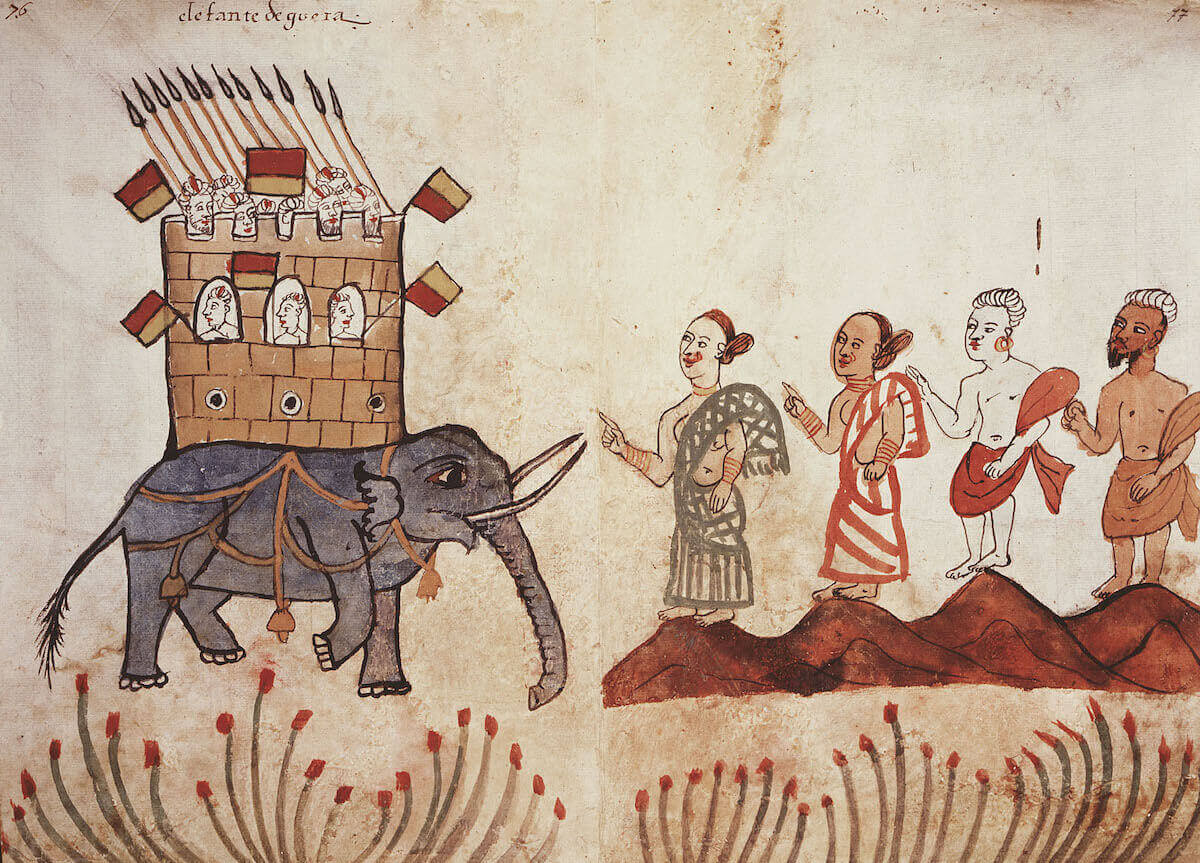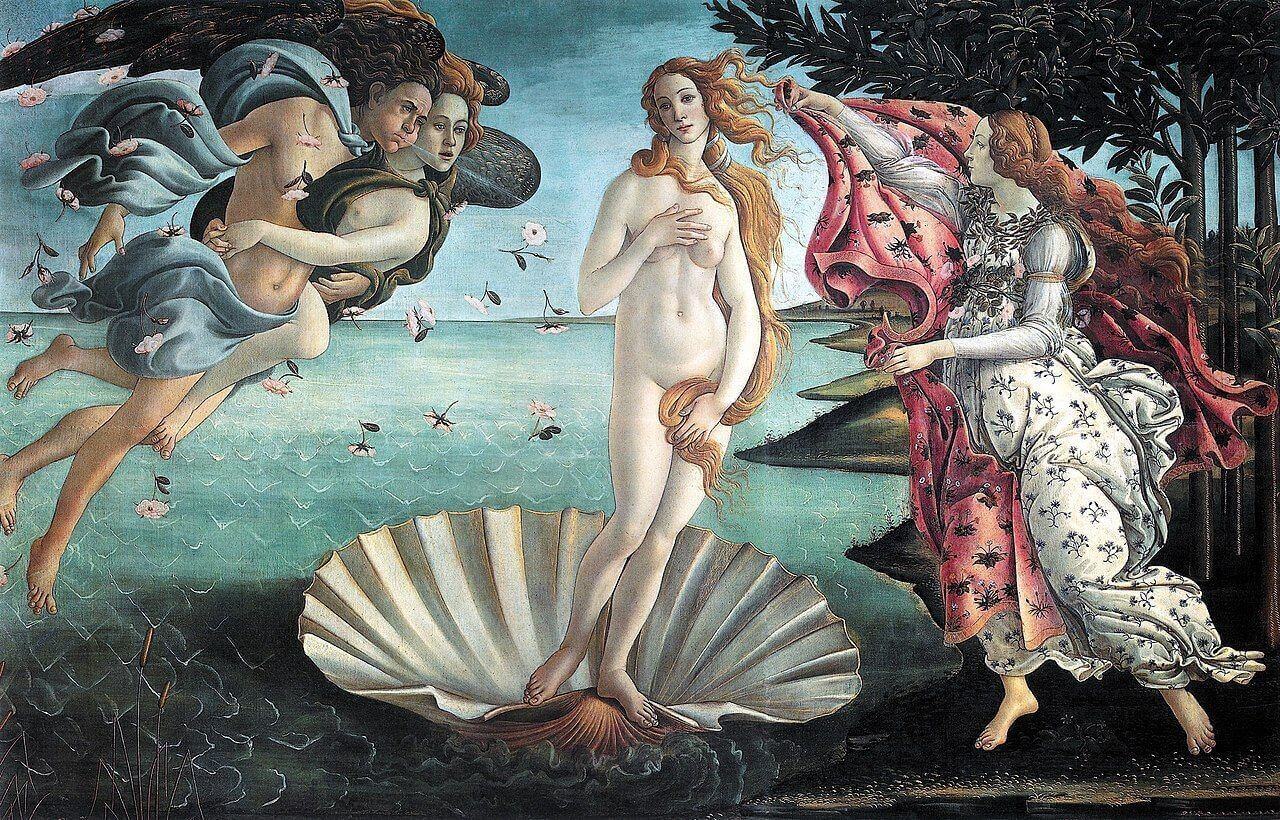Anaxagoras: Life
Anaxagoras was born into a wealthy family around the year 500 BCE in the city of Clazomenae, close to present-day Izmir on the coast of Turkey. When he was around twenty years old, he left Clazomenae for Athens. Accounts of why he moved to Athens differ: but some commentators claim that he left home because he was afraid that wealth and political power would get in the way of his pursuit of knowledge. Diogenes Laërtius, for example, tells the following story:
In the end, he retired and studied nature, giving no thought to public affairs. When someone asked him, “Have you no care for your country?” he replied, “Hush, I am very concerned about my country,” and he pointed to the heavens.
Like many of Diogenes Laërtius’s stories, this sounds more like fiction than history. But it does highlight Anaxagoras’s huge preoccupation (like many Presocratic philosophers) with astronomy.
Great balls of fire
It was his astronomical observations that eventually led Anaxagoras into trouble. After moving from Clazomenae, Anaxagoras spent thirty years in Athens. He became friendly with the great general Pericles, and some accounts say he was either the teacher of Socrates or else the teacher of Archelaus, who in turn taught Socrates. And like Socrates, Anaxagoras ended up in trouble with the authorities, tried on counts of impiety.
The thing that led to Anaxagoras’s downfall was his contention that the sun was a globe of hot metal larger than the Peloponnese. This claim that the sun was simply a big, hot lump of stuff offended the religious sensibilities of the Athenians as it left no role for gods such as Helios or Apollo.
Fortunately, Anaxagoras was defended at his trial by Pericles. And the general had studied the arts of rhetoric from his formidable partner Aspasia, so was no slouch when it came to making arguments in the philosopher’s defence. As a result, Anaxagoras got off lightly, and instead of being sentenced to death like Socrates only faced exile to the city of Lampsacus. He never returned to Athens. But in Lampsacus, he spent his final years honoured by the local people, who erected a statue in his honour. And when he died, in or around the year 428 BCE, the anniversary of his death was made a children’s holiday.
Anaxagoras: Philosophy
Anaxagoras’s philosophy is famously puzzling; and as for many of the Presocratic philosophers, this puzzlement is only increased by the fragmentary nature of his remaining texts. But from these fragments, it is possible to piece together a picture of a strangely distinctive world-view.
Arising and passing away
Anaxagoras took on board the claim made by Parmenides that nothing can come from nothing, that in reality nothing in the universe ever comes into existence or passes away out of existence, and that everything in existence is ultimately one single thing. But the problem with this idea is that it seems to be in direct conflict with our experience.
Parmenides got around this by making a distinction between the Way of Truth, the ultimate reality of things, and the Way of Opinion, or how things appear to us. But as a solution, this was not wholly satisfactory. It didn’t answer the question of why things appeared to arise and pass away. And this was the question that Anaxagoras tackled head-on.
A universe of gunk
The way Anaxagoras did this was by proposing that before the arising of any specific objects in the universe, there was a kind of primordial mixture out of which things arose. This primordial soup — the philosopher Anna Marmadoro refers to it as “gunk” — was the ultimate stuff of the universe. It was a goopy kind of blend in which everything was mixed with everything else. And this gunk preceded the existence of any specific thing: planets, platypuses, philosophers and so on. This meant it also preceded any observers who could witness it. Although, given its undifferentiated nature, even if there were observers to poke around in this primordial gunk, there would be nothing to see.
All things were together, unlimited both in amount and in smallness, for the small, too, was unlimited.— Anaxagoras, Fragment B1
Anaxagoras’s primordial gunk is a strange kind of thing. Another Presocratic philosopher, Democritus, argued that the things of the universe could be divided up repeatedly until we got to a point where we could no longer divide things any further: in other words, until we reached the uncuttable atoms that make up all things (atom in Greek means “uncuttable”). But Anaxagoras is not an atomist, and his gunk is not the indivisible bedrock of things. Instead, it is much more dynamic and… well, messy. You can poke around all you like, and you won’t get to the bottom of it.
When things like planets, platypuses and philosophers emerge out of this undifferentiated gunk, Anaxagoras says they are separated off. But in being separated off they do not lose their gunkiness. They continue to contain the seeds of everything that exists, because every bit of existence is mixed up with every other bit. So Anaxagoras says that:
In all things, there are many things present, equal in number, both in the greater and in the lesser of the things being separated off.— Anaxagoras, Fragment B6
For Anaxagoras, everything is present in everything else. And whatever the scale of a thing, from the smallest to the largest, everything else remains present in it. One way of thinking of this is that everything is a kind of coagulation of the original gunk, but in coagulating, it maintains the extreme mixture of the gunk out of which it has come. Or as Anaxagoras puts it:
Nothing can be completely separate; everything is in everything — Anaxagoras, Fragment B6
Separation and Nous
This raises a puzzling question: how does this separation out of primordial gunk take place? Or what is the coagulation agent that makes this original gunk start to separate off? Anaxagoras’s replies that it is Nous or “mind.”
This is one of the trickiest parts of Anaxagoras’s philosophy. He insists that Nous is the one thing that escapes his rule that everything is mixed with everything else. Of all things, Nous or mind is the only thing that is “unmixed, alone and by itself.” And it is this that gives it the ability to “set in order” the undifferentiated stuff of the universe. Anaxagoras writes that:
And whatever sorts of things were going to be, and whatever sorts were and now are not, and as many as are now and whatever sorts will be, all these Nous set in order…— Anaxagoras, Fragment B6
This may all seem quite perplexing. But Anaxagoras left a significant legacy. Through his theory that sets up an undifferentiated, gunky goop as the material basis of things, with the mind acting as the ordering principle, he puts in place a long-standing metaphysical division: the division between mind and matter. And this division became central to the philosophical traditions that followed him.
Further Reading
Anaxagoras is a tricky philosopher to get to grips with. But here are a few places to start following up on some of the ideas.
Books
Anna Marmodoro’s Anaxagoras’s Metaphysics (Oxford University Press 2017) has a fascinating discussion of the gunkiness of Anaxagoras’s philosophy.
A great translation of Anaxagoras’s fragments is Anaxagoras of Clazomenae: Fragments and Testimonia: a text and translation with notes and essays by Patricia Curd (University of Toronto Press 2007).
Online Resources
“Gunk” is a technical, philosophical term! Read Anna Marmodoro’s article on the OUP blog.



